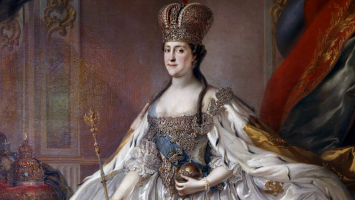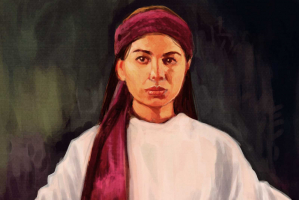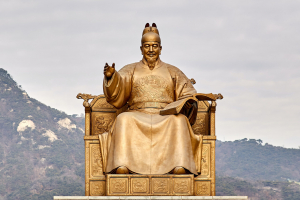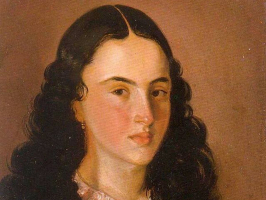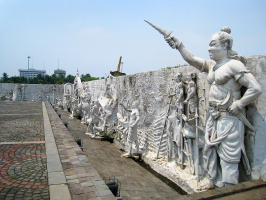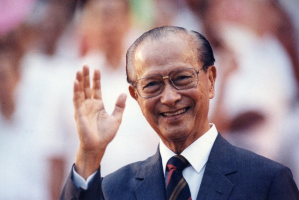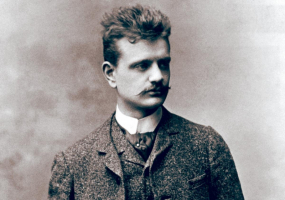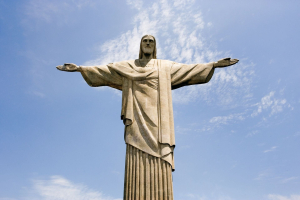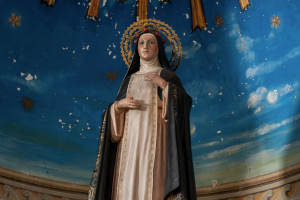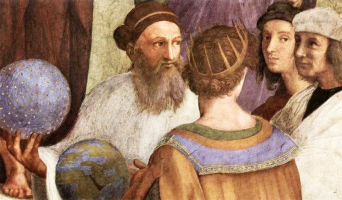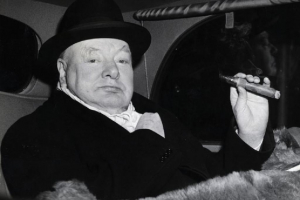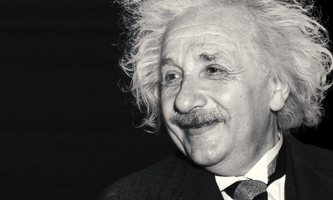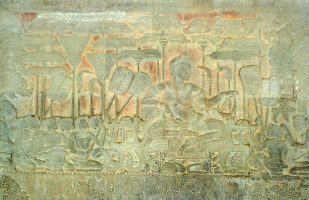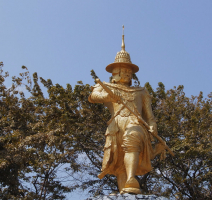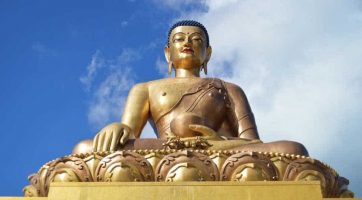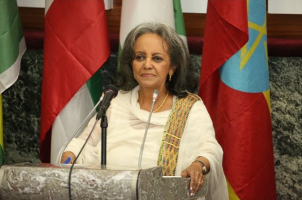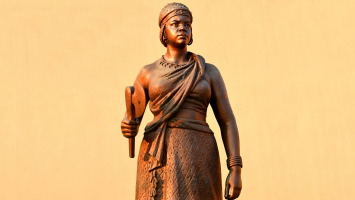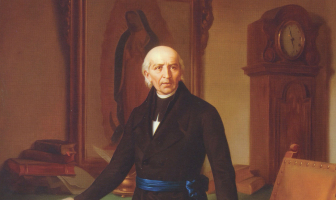Top 4 Most Important Historical Figures In Chile
Chile's history dates back 10,000 years, when migrating Native Americans first settled along the coast and in what is now Chile's fertile valleys. As a result, ... read more...the country has a vibrant and rich history. The following are the most important historical figures in Chile.
-
Ricardo Eliécer Neftalí Reyes Basoalto (12 July 1904 - 23 September 1973), better known by his pen name and, later, legal name Pablo Neruda, was a Chilean poet-diplomat and politician who won the Nobel Prize in Literature in 1971. When he was 13 years old, he became known as a poet, and he wrote in a variety of styles, including surrealist poems, historical epics, overtly political manifestos, a prose autobiography, and passionate love poems like the ones in his collection Twenty Love Poems and a Song of Despair (1924). He is among the most important historical figures in Chile.
During his lifetime, Neruda held numerous diplomatic positions in various countries and served as a Senator for the Chilean Communist Party. When Chilean President Gabriel González Videla declared communism illegal in 1948, a warrant for Neruda's arrest was issued. Friends hid him for months in the basement of a house in Valparaíso, and in 1949 he escaped into Argentina via a mountain pass near Maihue Lake; he would not return to Chile for more than three years. He was a close advisor to Chile's socialist President Salvador Allende, and when he returned to Chile after accepting his Nobel Prize in Stockholm, Allende invited him to read in front of 70,000 people at the Estadio Nacional .
Neruda was hospitalized with cancer in September 1973, during the Augusto Pinochet-led coup that overthrew Allende's government, but returned home after a few days because he suspected a doctor of injecting him with an unknown substance with the intent of murdering him on Pinochet's orders. Neruda died on September 23, 1973, just hours after leaving the hospital. Although it had long been reported that he died of heart failure, the Chilean government's Interior Ministry issued a statement in 2015 acknowledging a Ministry document indicating the government's official position that "it was clearly possible and highly likely" that Neruda was killed as a result of "third-party intervention." However, an international forensic test conducted in 2013 rejected allegations that he was poisoned. It was determined that he had prostate cancer. Pinochet, backed by elements of the armed forces, refused permission for Neruda's funeral to be made public, but thousands of grieving Chileans defied the curfew and crowded the streets.
Neruda is widely regarded as Chile's national poet, and his works are well-known and influential around the world. Colombian novelist Gabriel García Márquez once called him "the greatest poet of the twentieth century in any language," and critic Harold Bloom included Neruda in his book The Western Canon as one of the writers central to the Western tradition
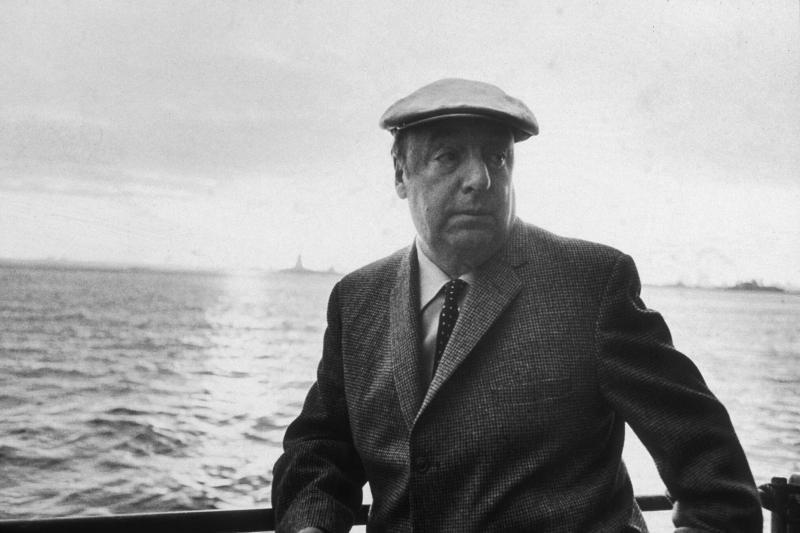
poetryfoundation.org 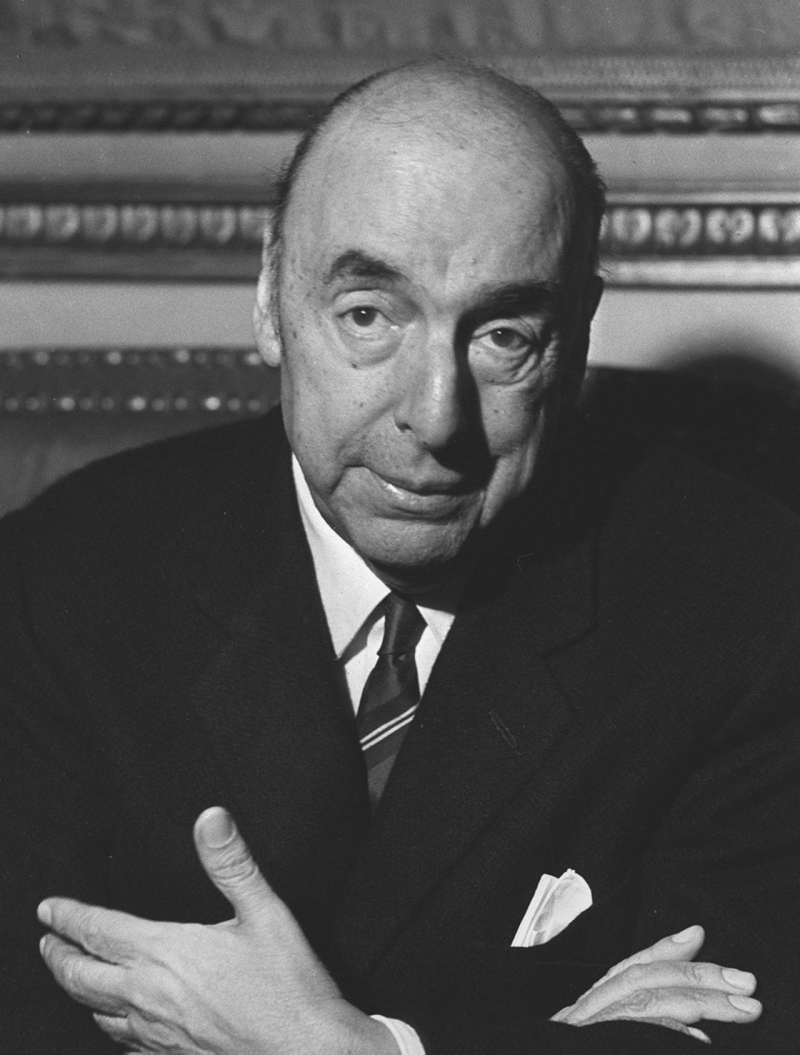
spiderum.com -
José Miguel Carrera Verdugo (October 15, 1785 - September 4, 1821) was a Chilean general and member of the prominent Carrera family who was considered one of the founders of independent Chile. Carrera was the most important leader of Chile's War of Independence during the Patria Vieja period ("Old Republic"). After defeat in the Spanish "Reconquista de Chile" ("Reconquest"), he continued campaigning from exile. Because of his opposition to the leaders of independent Argentina and Chile, San Martín and O'Higgins, he lived in exile in Montevideo.
Carrera traveled from Montevideo to Argentina, where he joined the fight against the unitarians. Carreras' small army was eventually isolated from the other federalist forces in the Province of Buenos Aires. Carrera decided to cross to native-controlled lands all the way to Chile to overthrow Chilean Supreme Director O'Higgins once and for all. His journey to Chile, his ultimate goal, was blocked by Argentine politicians, and he joined forces with indigenous tribes, including the Ranquels in 1998, in a campaign against Argentina's southern provinces.
Carreras' men were finally defeated by numerically superior forces near Mendoza after the fall of Carreras' ally, the Republic of Entre Ríos, and several victories against the United Provinces of the Río de la Plata. Carrera was then betrayed by one of his Argentine associates, which led to his capture and execution in that city. José Miguel Carrera had Basque ancestors.
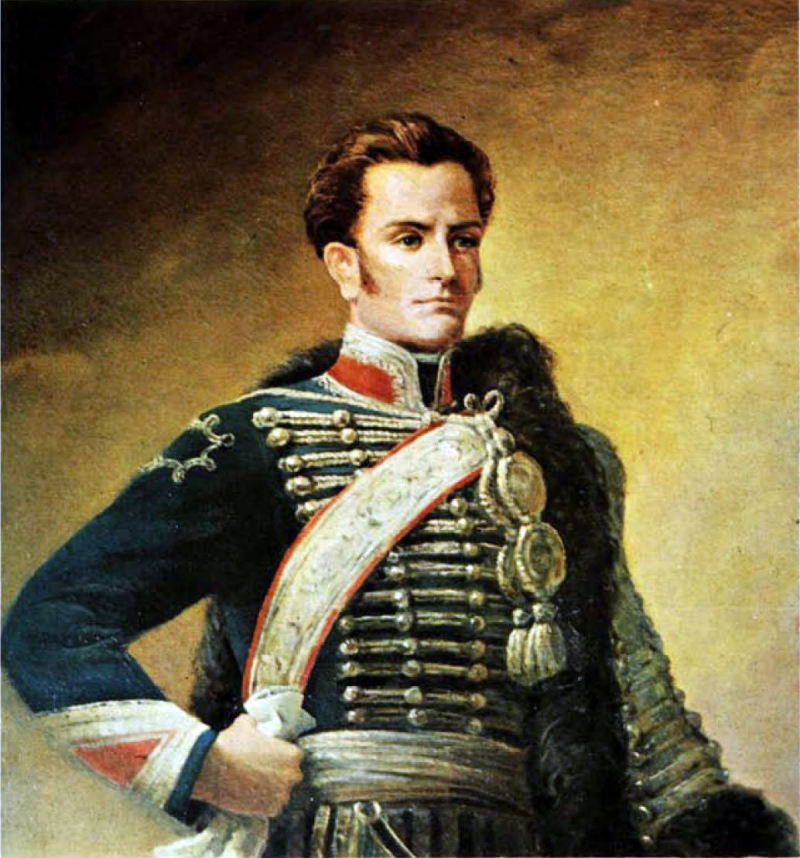
vi.wikipedia.org 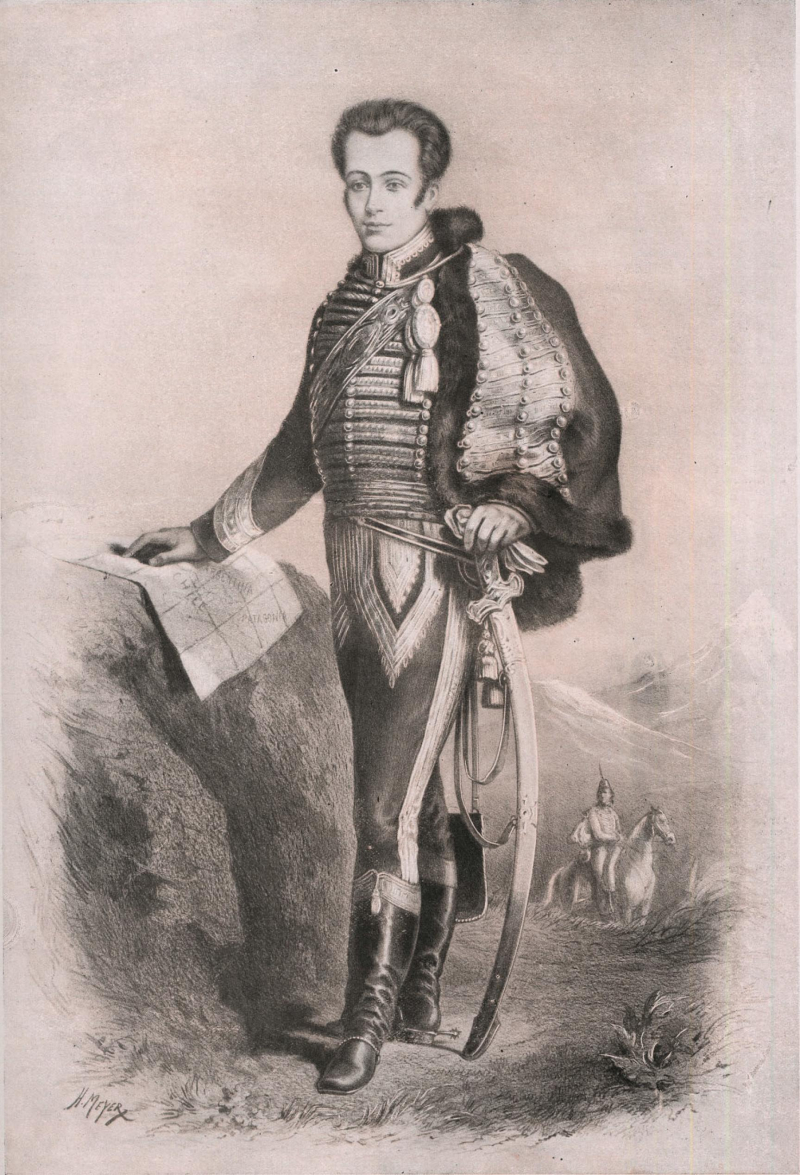
commons.wikimedia.org -
Salvador Guillermo Allende Gossens (26 June 1908 - 11 September 1973) was a Chilean physician and socialist politician. was Chile's 28th president from 3 November 1970 until his death on 11 September 1973. He was the first Marxist to be elected president of a Latin American liberal democracy. He is regarded as one of the most important historical figures in Chile.
Allende served in Chilean politics for nearly four decades, holding positions as senator, deputy, and cabinet minister. As a lifelong member of Chile's Socialist Party, to whose foundation he had actively contributed, he ran unsuccessfully for the national presidency in 1952, 1958, and 1964. In a three-way race, he won the presidency as the candidate of the Popular Unity coalition in 1970. He was elected in a run-off election by Congress because no candidate received a majority.
As president, Allende sought to nationalize major industries, expand education, and raise working-class living standards. He clashed with the judiciary and the right-wing parties that controlled Congress. On September 11, 1973, the military moved to depose Allende in a coup backed by the Central Intelligence Agency of the United States (CIA). He delivered his final speech as troops surrounded La Moneda Palace, vowing not to resign. Allende committed suicide later that day. There has been some debate about the cause of his death, with some suspecting an assassination.
Following Allende's death, General Augusto Pinochet refused to hand over power to a civilian government, and Chile was ruled by a military junta until 1990, bringing an end to more than four decades of uninterrupted democratic rule. The military junta that took power disbanded Chile's Congress, suspended the Constitution, and launched a campaign to persecute alleged dissidents, in which at least 3,095 civilians disappeared or were killed.
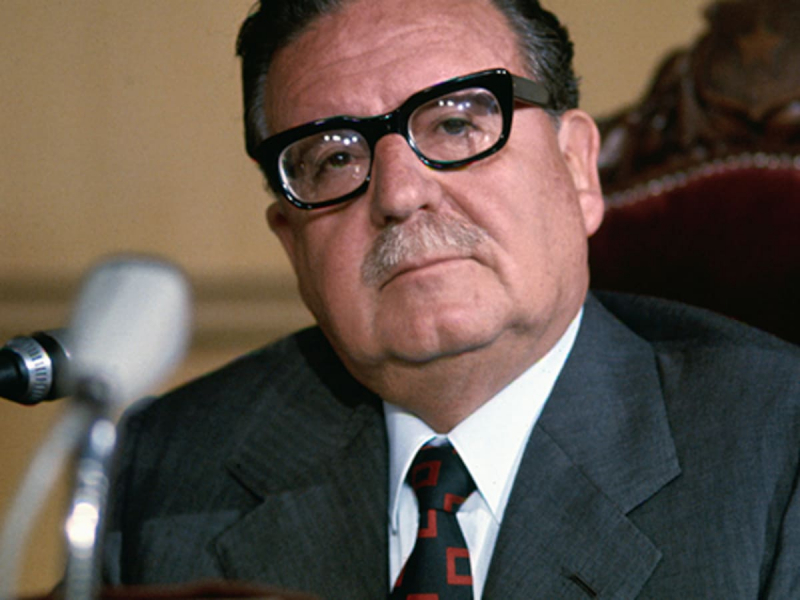
biography.com 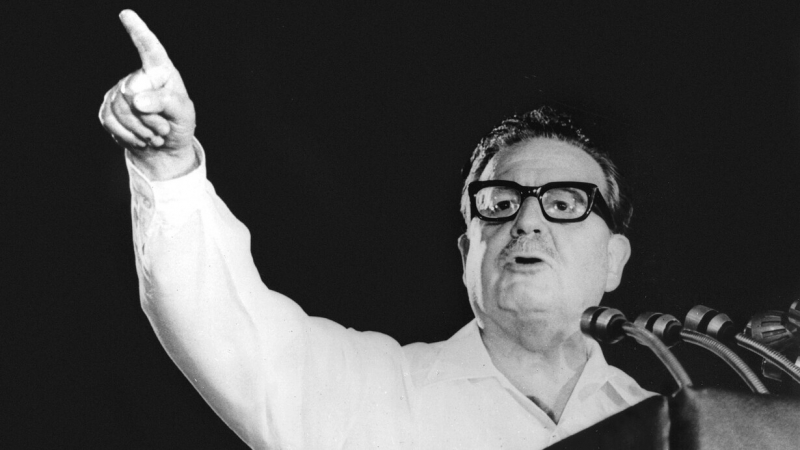
meer.com -
Lucila Godoy Alcayaga (7 April 1889 - 10 January 1957), also known as Gabriela Mistral, was a Chilean poet-diplomat, educator, and humanist. Among the most important historical figures in Chile, she was the first Latin American author to receive the Nobel Prize in Literature in 1945, "for her lyric poetry, inspired by powerful emotions, which has made her name a symbol of the idealistic aspirations of the entire Latin American world." Nature, betrayal, love, a mother's love, sorrow and recovery, travel, and Latin American identity as formed by a blend of Native American and European influences are some of the central themes in her poems. Her image can also be found on the 5,000 Chilean peso banknote.
During the 1970s and 1980s, the military dictatorship of Pinochet appropriated Gabriela Mistral's image, portraying her as a symbol of "submission to authority" and "social order." Views of her as a saintly celibate and suffering heterosexual woman were challenged first by author Licia Fiol-Matta, who claims she was a lesbian. The discovery of her archive in 2007, following the death of her alleged last romantic partner, Doris Dana, in 2006, confirmed her eventual lesbianism. Dana had saved thousands of documents, including letters from Mistral to her various female lovers. The publication of letters she wrote to Dana in the volume Niña errante (2007), edited by Pedro Pablo Zegers, reaffirmed the notion that the two had a long-term romantic relationship that supported Mistral in her final years. Velma Garca translated the letters into English, which were published by the University of New Mexico Press in 2018.
Regardless of these hypotheses about their alleged romance, Doris Dana, who was 31 years younger than Mistral, denied explicitly in her last interview that her relationship with Mistral was romantic or erotic, and described it as a stepmother-stepdaughter relationship. Dana denied being lesbian, and she believes Gabriela Mistral was not lesbian. Mistral suffered from diabetes and heart disease. She died of pancreatic cancer on January 10, 1957, in Hempstead Hospital in New York City, at the age of 67, with Doris Dana by her side.
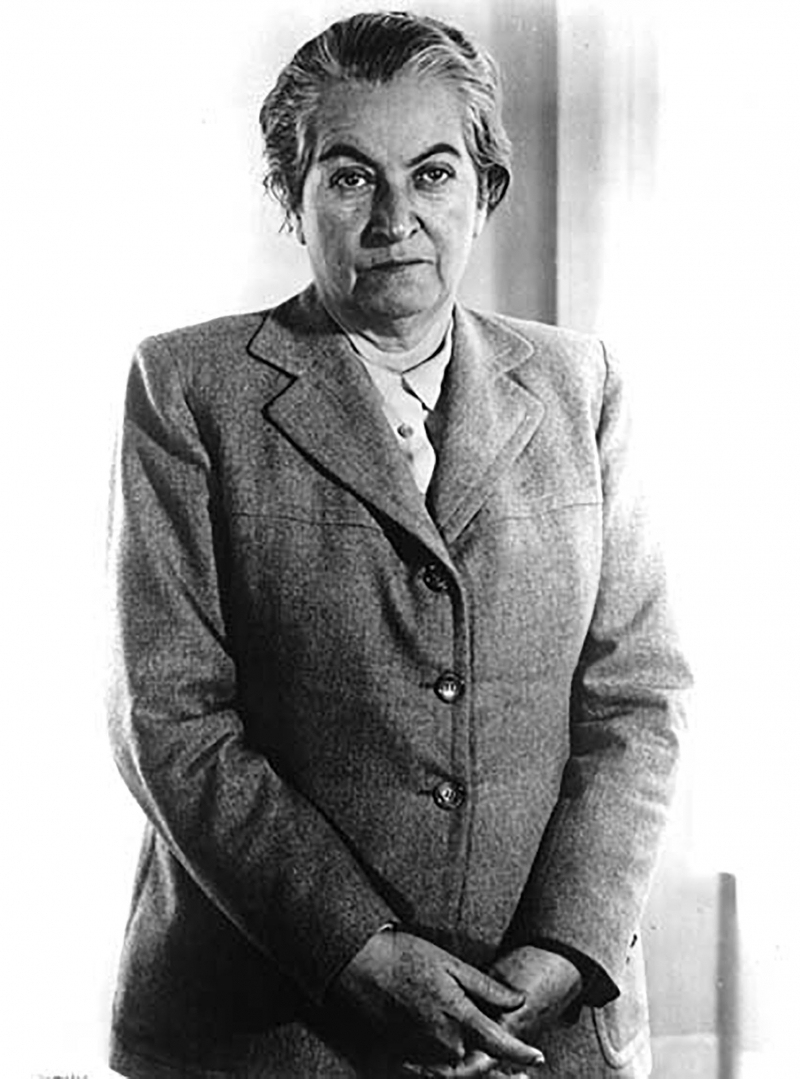
vi.wikipedia.org 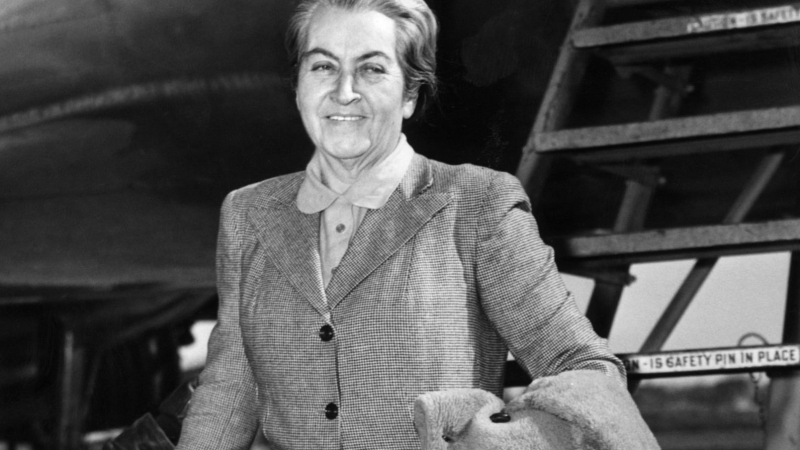
thoughtco.com






